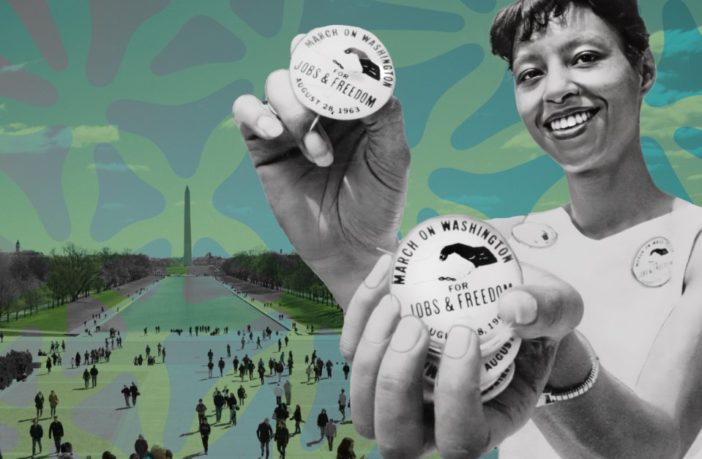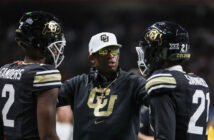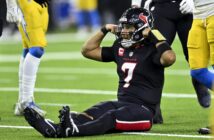By Fred Redmond
Sixty years ago this month, the Rev. Dr. Martin Luther King Jr. stood on the steps of the Lincoln Memorial and delivered perhaps his most famous speech to a quarter of a million people.
He told the crowd that he dreamt of a day where “this nation will rise up and live out the true meaning of its creed,” where his children “will not be judged by the color of their skin but by the content of their character.”
And it was a call to action “to make real the promises of democracy” and “to lift our nation from the quicksands of racial injustice to the solid rock of brotherhood. Now is the time to make justice a reality for all of God’s children.”
It was a great speech. Most of us are familiar with it and the images from that day — the throngs of people — mostly Black people — that stretched from the reflecting pool to the Washington Monument. It’s a moment that remains an enduring touchstone in the history of the movement for civil rights.
But what often gets lost in its brilliance is the why. Why were a quarter of a million people gathered on the National Mall in the first place? They were there for civil rights and economic justice, they were there for the 1963 March on Washington for Jobs and Freedom.
When Dr. King finished his address, he handed the microphone back to A. Philip Randolph and Bayard Rustin, prominent Black labor leaders and the chief architects of the March, who recited a list of the demands the labor, faith and civil rights movement leaders would deliver to President Kennedy. They demanded equal access to jobs, public accommodations, and voting rights. They called for full employment and a raise in the federal minimum wage. And Randolph and Rustin led the tremendous crowd in a pledge to persist until every demand had been fulfilled.
By many measures, the event initiated by the Negro American Labor Council was a success. The demonstration galvanized labor unions, civil rights organizations and Black working-class communities. It paved the way for the passage of two pieces of landmark legislation which made democracy real for millions of people: the Civil Rights Act of 1964 and the Voting Rights Act of 1965. Real voting rights to fight against racial discrimination, unfair labor practices and other barriers to equal rights.
But 60 years later, working people have seen so much of that progress stalled, reversed, and in some cases, completely erased.
Extremist politicians and judges — including in the highest court in the land — are doing everything they can to take away our rights. Electoral districts are being redrawn to weaken the voting power of Black communities. There are fewer and fewer polling places in Black neighborhoods. Black voters are being intimidated, and are often the target of misinformation and disinformation campaigns.
Corporate-backed lawmakers have introduced dangerous bills that limit the voting rights of the most vulnerable in our society, including women, young adults, communities of color and LGBTQ+ people.
They have weakened labor laws so that workers have less of a voice on the job and rigged the rules of the economy in favor of the wealthy and corporations and corporate interests━rules that have exacerbated inequality and have left working people behind.
Sixty years ago, A. Philip Randolph called those gathered for the March “the advanced guard of a massive, moral revolution for jobs and freedom.” And said that “we here today are only the first wave … and we shall return again and again to Washington in ever growing numbers until total freedom is ours.”
Total freedom is not ours. And so, on Aug. 26, the American labor movement is joining together with the National Action Network and the family of Dr. King to recommit to taking bold action and achieving racial, economic, and social justice in every corner of our society. We’re joining together to fully realize the dream laid out by Dr. King, John Lewis, Randolph and Rustin, and the other organizers of the 1963 March, and shape a democracy where working people have a voice at every level of government.
We’re gathering to hold our elected leaders accountable and demand that they finally pass critical civil and workers rights legislation, including the John R. Lewis Voting Rights Advancement Act, the Freedom to Vote Act and the Richard L. Trumka Protecting the Right to Organize Act.
We are gathering to bring an end to systemic injustice and to vanquish oppression in all its forms.
We are gathering to create lasting change for us and future generations. Join us.
Fred Redmond
Fred Redmond is the secretary-treasurer of the 60 union, 12.5 million-member AFL-CIO, America’s labor federation.
This article was originally published by WordinBlack.
The opinions on this page are those of the writers and not necessarily those of the AFRO. Send letters to The Afro-American • 233 E. Redwood Street Suite 600G
Baltimore, MD 21202 or fax to 1-877-570-9297 or e-mail to editor@afro.com
Help us Continue to tell OUR Story and join the AFRO family as a member –subscribers are now members! Join here!



